If you find yourself navigating the complexities of a pre-litigation settlement, you're not alone. Many individuals and businesses face similar challenges when trying to resolve disputes amicably. A well-crafted settlement offer letter is essential to pave the way for negotiation and potential resolution before escalating to litigation. Ready to learn more about how to effectively draft this crucial document?
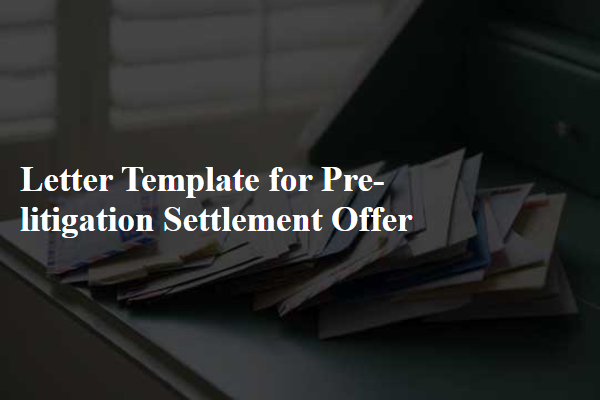
Parties involved
A pre-litigation settlement offer outlines the proposed agreement between disputing parties, typically involving individuals or organizations in conflict. This document serves as a formal communication to resolve disputes before escalating to litigation. Key parties involved may include the claimant, who initiates the settlement offer, and the respondent, who evaluates the terms presented. Relevant details such as the nature of the dispute, specific claims being made, and the desired outcome must be clearly defined. Additionally, the context surrounding previous correspondence, negotiations, and actions taken by each party should be included to provide a comprehensive view of the situation. The goal is to facilitate amicable resolution and avoid costly legal proceedings.
Summary of dispute
In a recent dispute involving a contract breach between Company A and Company B, the issues arose from the non-delivery of goods worth $150,000 that were ordered on January 15, 2023. The agreed delivery date was set for February 15, 2023, but Company B failed to fulfill its obligations, leading to complications in Company A's operations and financial losses. Company A attempted multiple communications via email and phone calls, seeking resolution, but received no adequate response. The ongoing situation has caused significant reputational damage to Company A, alongside additional costs amounting to $20,000 due to the need for alternative product sourcing. This summary highlights the essential elements of the dispute, providing a clear context for a potential pre-litigation settlement offer to resolve the matter amicably.
Proposed settlement terms
A pre-litigation settlement offer can serve as a crucial step in dispute resolution, aiming to avoid lengthy legal proceedings. The proposed settlement terms often include financial compensation, such as a specific monetary amount like $50,000, which addresses damages or losses incurred. Additionally, non-monetary elements may be proposed, like a written apology from the party at fault, which can help clarify accountability. The offer may also outline conditions for confidentiality, restricting the parties from discussing details publicly, and a timeline for acceptance, typically ranging from 30 to 45 days. This structured approach fosters negotiation and aims to facilitate a mutually agreeable resolution before escalating to formal litigation.
Deadline for response
A pre-litigation settlement offer serves as a strategic approach to resolving disputes before escalating to formal legal proceedings. The offer outlines the terms proposed for settlement, encouraging amicable resolution without court involvement. Key components include a clear explanation of the grievances, the proposed amount for settlement, and a specified deadline for response, typically ranging from 10 to 30 days, providing both parties sufficient time for consideration. This document highlights the urgency of reaching a conclusion, often referencing relevant laws or past cases to substantiate the rationale behind the offer. Communication, usually conducted through legal counsel, emphasizes professionalism and respect for all parties involved, aiming to foster negotiation rather than confrontation.
Contact information for communication
Pre-litigation settlement offers require clarity and detail to facilitate effective communication between involved parties. Key contact information includes full names of each party, mailing addresses, phone numbers, and email addresses. Clear identification of the representatives for each side, particularly in corporate or legal matters, is crucial. Additionally, including specific time frames for responses can expedite negotiations. Ensure all communication details are accurate, as they form the basis for any further negotiation or settlement agreement, potentially affecting outcomes in cases requiring mediation or arbitration.
Letter Template For Pre-Litigation Settlement Offer Samples
Letter template of initial settlement proposal for pre-litigation discussion
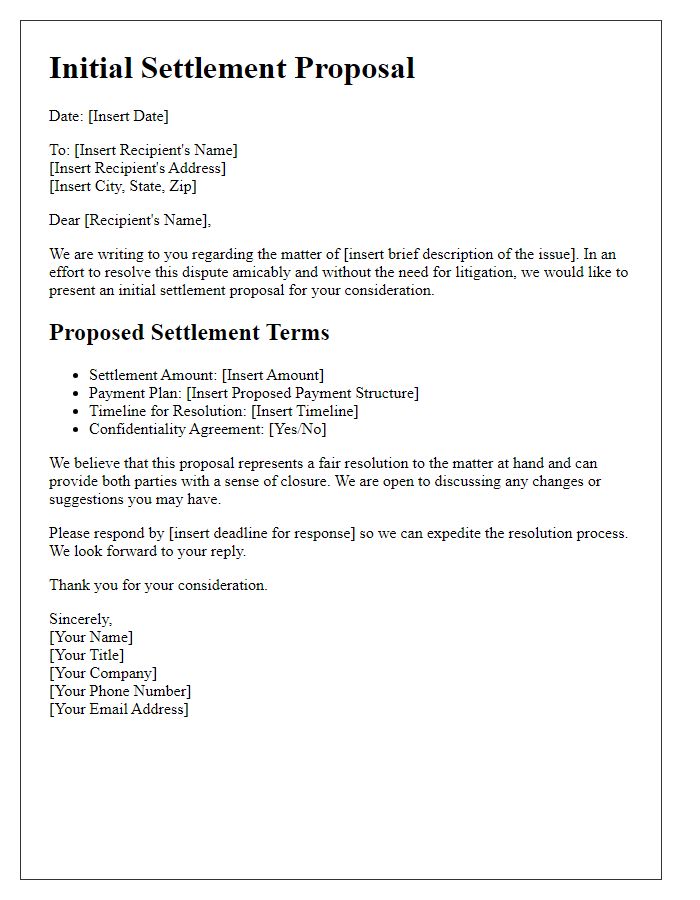

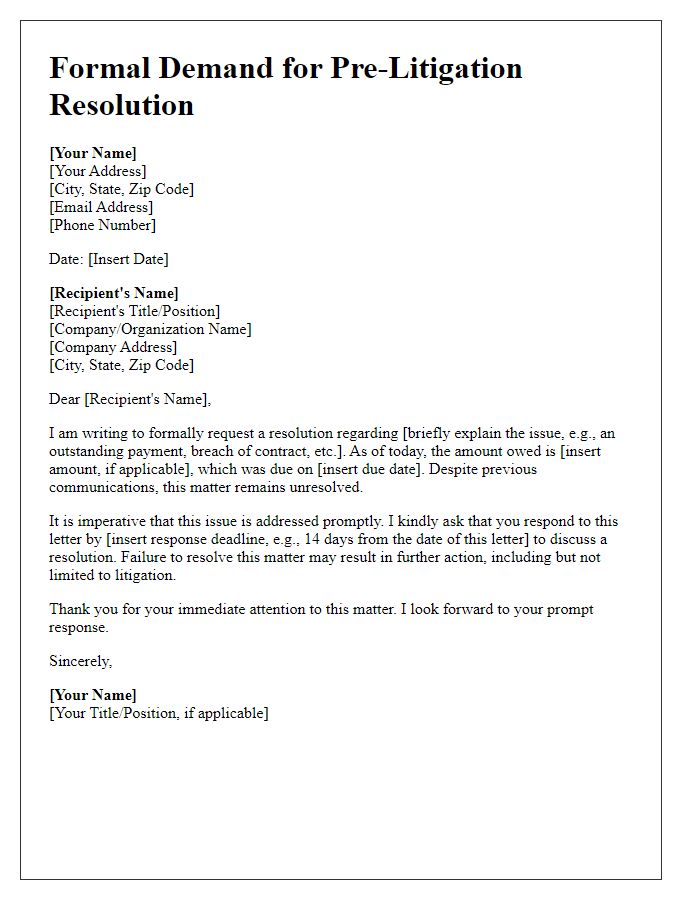
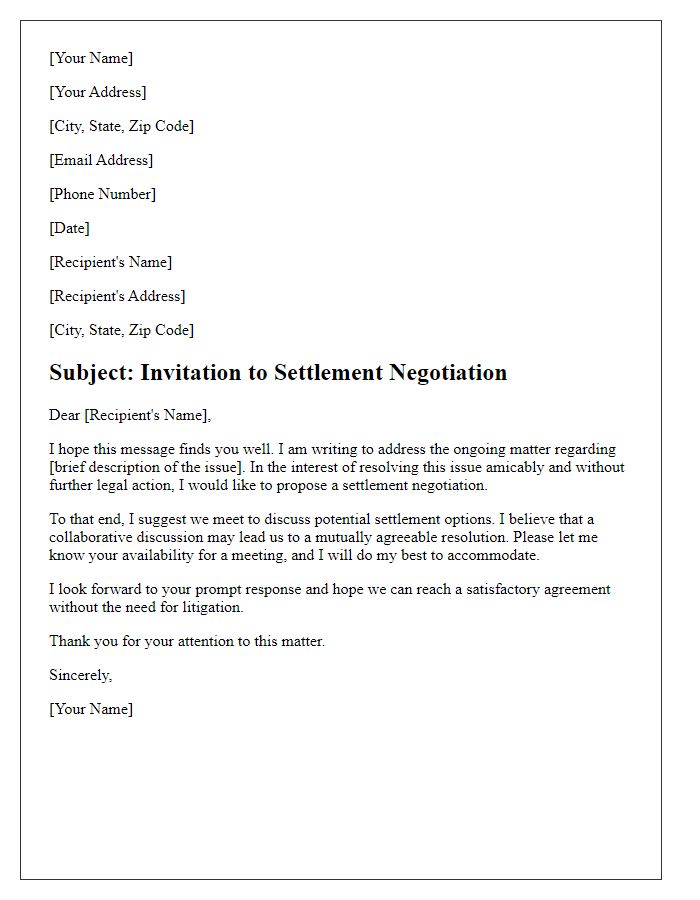
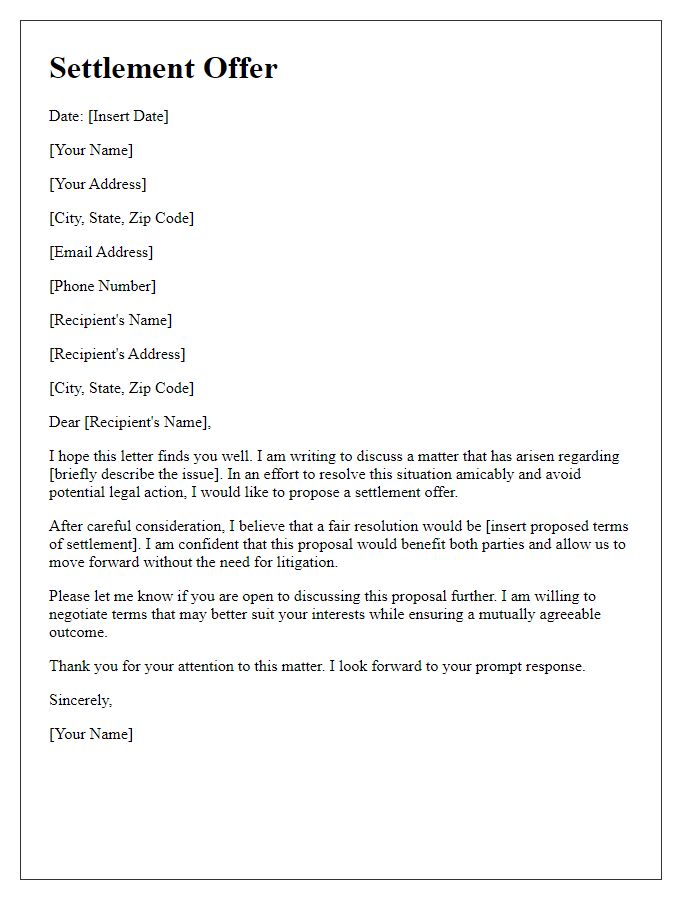
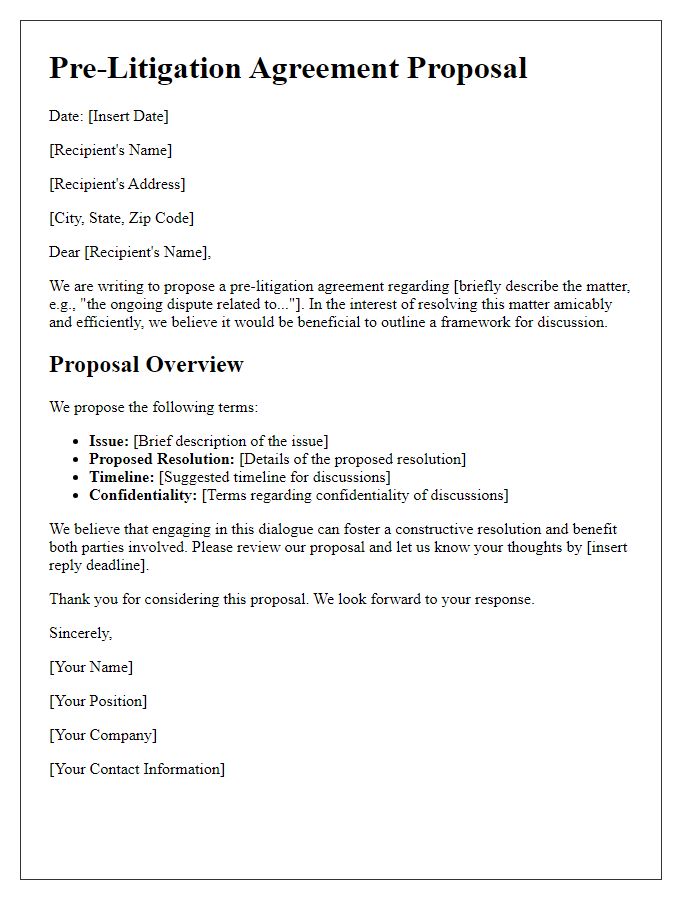
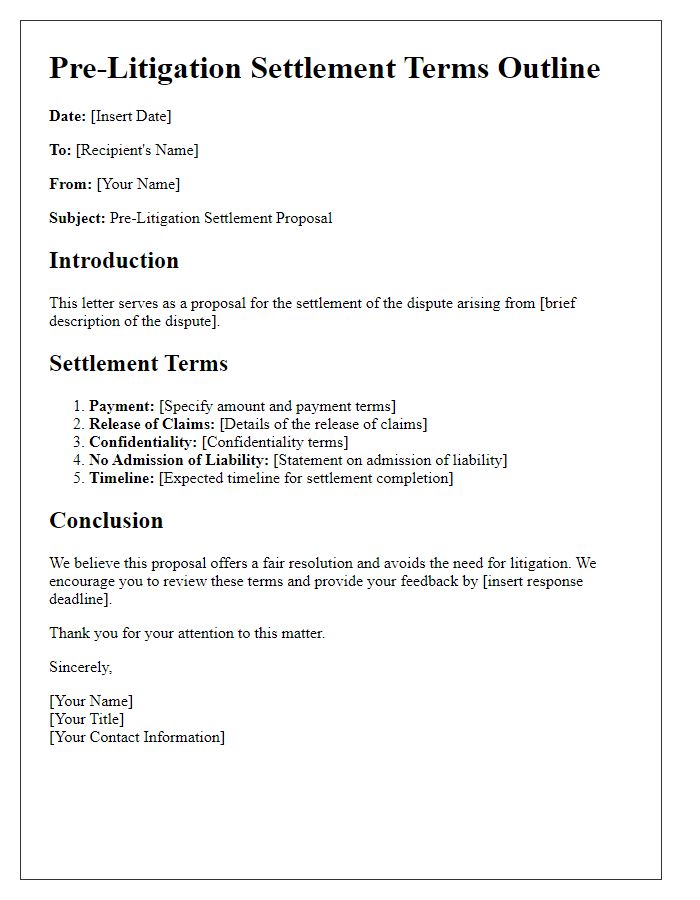
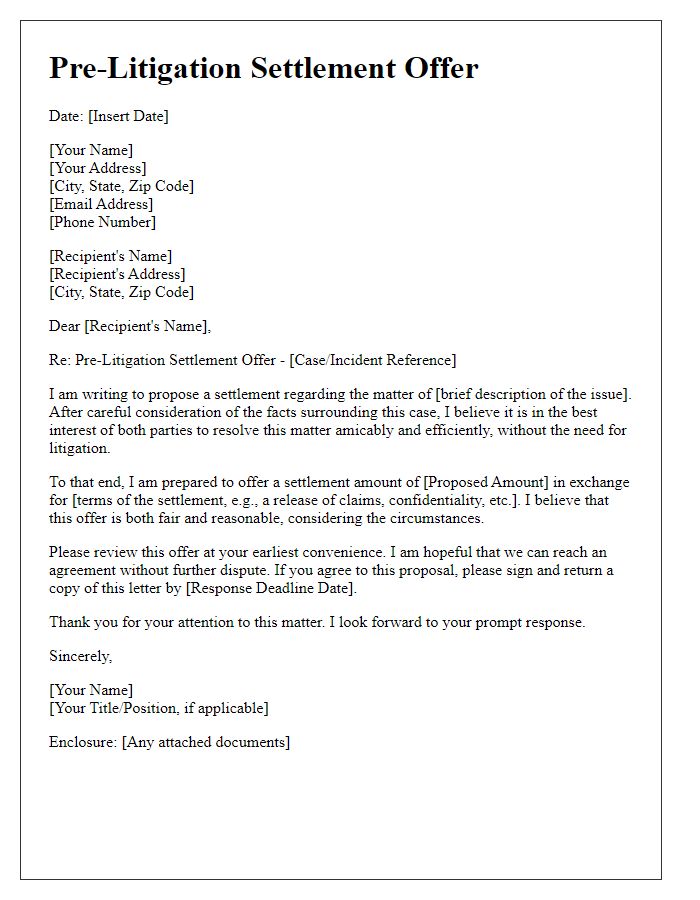
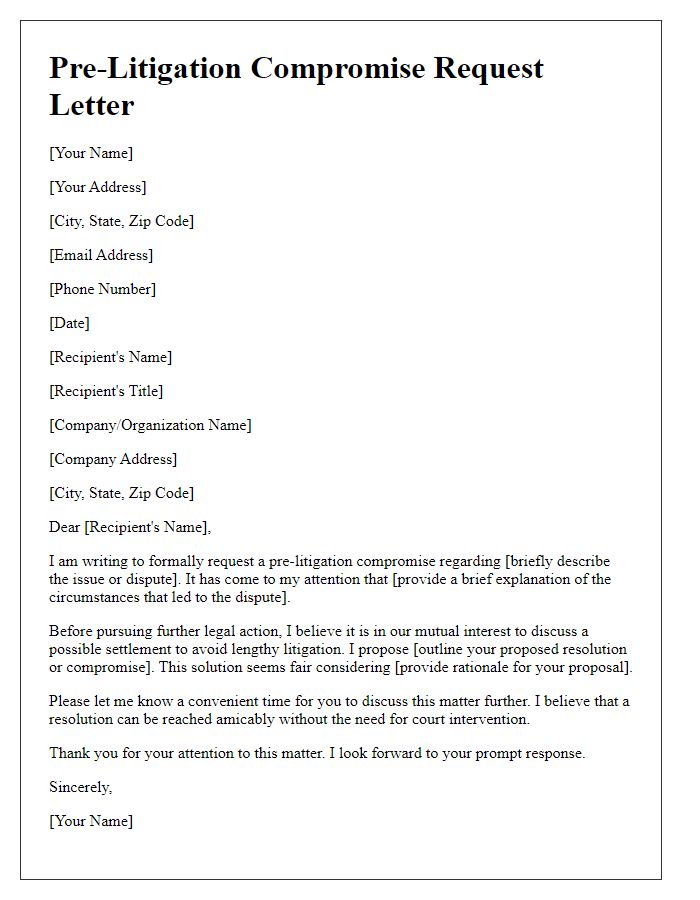
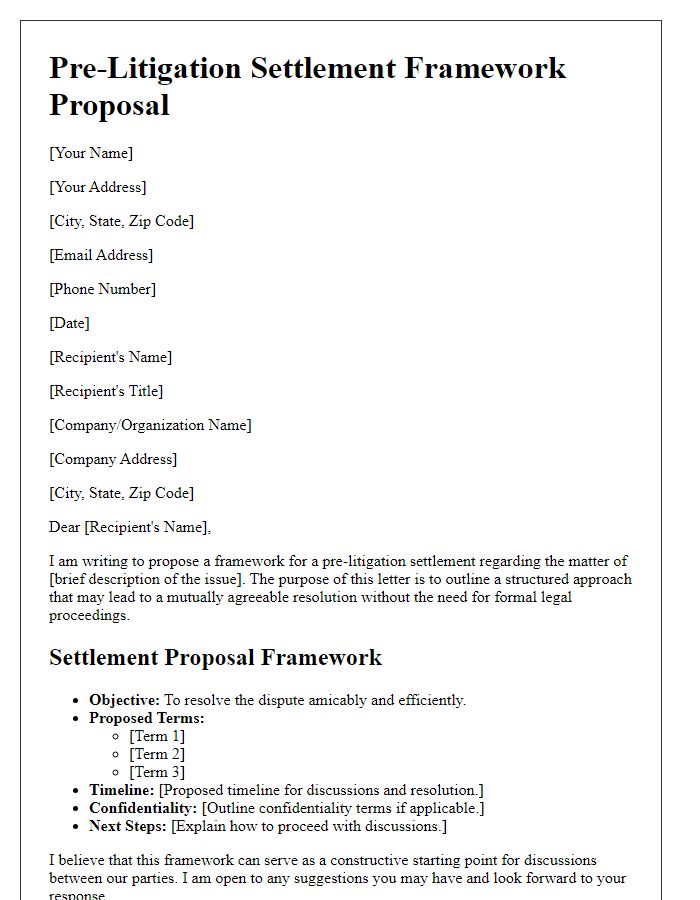
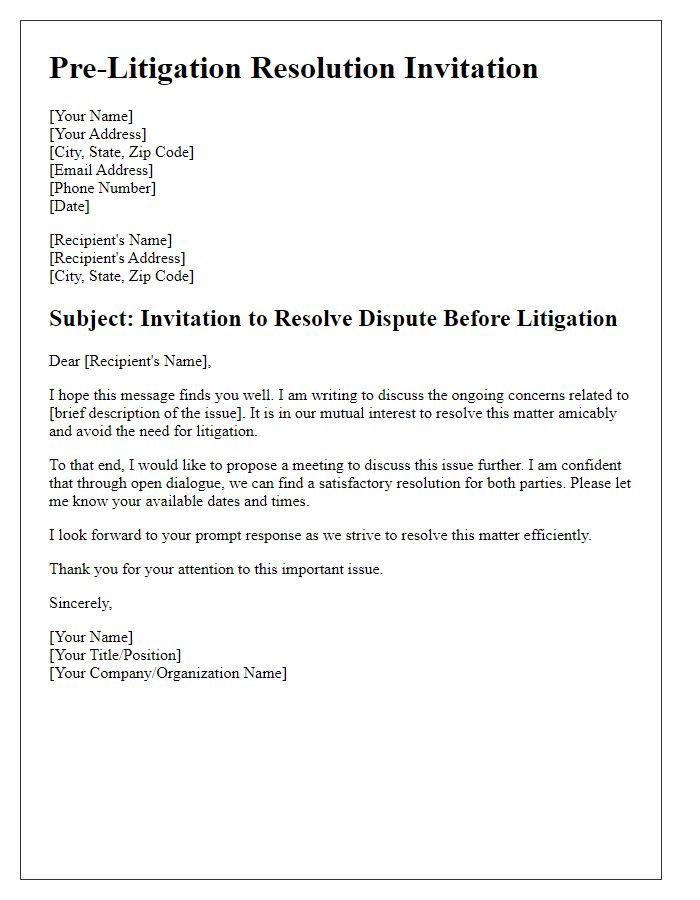

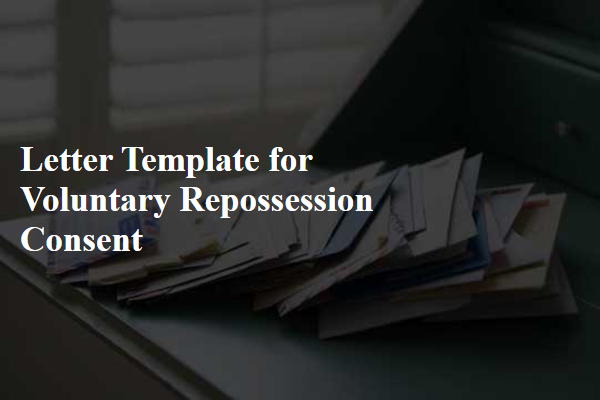
Comments